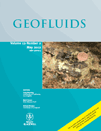
GEOFLUIDS
Scope & Guideline
Championing Open Knowledge in Geoscience Research
Introduction
Aims and Scopes
- Hydrogeology and Groundwater Flow:
Research exploring the movement and quality of groundwater, including the impacts of geological formations on aquifer behavior and groundwater management. - Geothermal Energy and Resource Management:
Studies on the extraction and management of geothermal resources, focusing on thermal-hydraulic-mechanical interactions in subsurface reservoirs. - Hydraulic Fracturing and Reservoir Engineering:
Investigations into the mechanics of hydraulic fracturing, reservoir behavior under fluid injection, and optimization of extraction techniques for hydrocarbons. - Environmental Geochemistry:
Research on the chemical interactions between fluids and geological materials, including contamination studies and the assessment of natural resource quality. - Fluid Dynamics in Geological Processes:
Analyses of fluid behavior in various geological settings, including the impact of geological structures on fluid flow and pressure dynamics. - Rock Mechanics and Stability Analysis:
Studies on the mechanical behavior of geological materials, including stability analyses of rock structures under various conditions. - Petroleum Geology and Enhanced Oil Recovery:
Research focused on the geological aspects of petroleum reservoirs, including enhanced oil recovery techniques and the analysis of hydrocarbon migration.
Trending and Emerging
- Integrated Approaches to Resource Management:
An increasing number of papers focus on integrative methodologies that combine geological, hydrological, and chemical aspects for sustainable resource management, particularly in the context of groundwater and geothermal resources. - Advanced Modelling Techniques:
There is a growing trend towards the use of sophisticated modelling techniques, including machine learning and numerical simulations, to predict fluid behavior in complex geological environments. - Climate Change and Environmental Impacts:
Research addressing the implications of climate change on geological fluid dynamics, particularly in relation to groundwater resources and the stability of geological formations under changing environmental conditions, is gaining prominence. - Fluid-Rock Interaction Studies:
Emerging studies focus on the interactions between fluids and geological formations, particularly in the context of enhanced oil recovery and carbon capture and storage, highlighting the importance of understanding these processes for resource extraction and environmental protection. - Geomechanical and Seepage Behavior in Mining:
There is an increasing emphasis on understanding the geomechanical properties and seepage behavior of rocks during mining activities, reflecting the industry's need to manage risks associated with subsurface fluid movements.
Declining or Waning
- Traditional Hydrocarbon Exploration Techniques:
There has been a noticeable decline in papers focusing solely on conventional hydrocarbon exploration methods, as the field shifts towards more integrated approaches involving unconventional resources and enhanced recovery techniques. - Basic Fluid Mechanics Studies:
Research centered on fundamental fluid mechanics without direct geological applications appears to be waning, with an increasing emphasis on applied studies that incorporate geological contexts. - Single-Factor Environmental Impact Studies:
Papers focusing solely on isolated environmental impacts without considering the broader geological or fluid dynamics context are being published less frequently, reflecting a trend towards more comprehensive, integrative studies.
Similar Journals

JOURNAL OF THE GEOLOGICAL SOCIETY OF INDIA
Fostering scholarly dialogue in Earth and Planetary Sciences.JOURNAL OF THE GEOLOGICAL SOCIETY OF INDIA, published by Springer India, serves as a pivotal platform for researchers and practitioners in the field of geology. Established in 1979, this journal has been instrumental in advancing geological research throughout India, showcasing both regional studies and cutting-edge global research. With its Category Quartile ranking of Q3 in the geology category for 2023, and a significant Scopus rank of 171 among 321 journals in Earth and Planetary Sciences, it remains a respected source of scholarly activity. The journal is dedicated to the dissemination of original research articles, reviews, and case studies that encapsulate the dynamic scope of geological science, thus contributing to the understanding of geological phenomena. Although currently not offering open access, the journal maintains a commitment to high-quality scholarship and aims to engage a diverse readership, enhancing the knowledge and practice of geology across various disciplines.
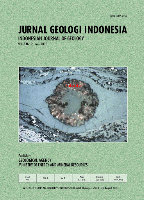
Indonesian Journal of Geoscience
Unlocking the Secrets of Our Planet Through Research.Indonesian Journal of Geoscience, published by the GEOLOGICAL AGENCY, is a vital platform for sharing cutting-edge research in the field of Earth and Planetary Sciences. With an ISSN of 2355-9314 and E-ISSN of 2355-9306, this open-access journal has been making significant contributions to the geoscientific community since its establishment in 2013. Operating out of Bandung, Indonesia, the journal is dedicated to disseminating high-quality research across diverse areas, making it an essential resource for researchers, professionals, and students alike. Recognized in the 2023 Q2 category in Earth and Planetary Sciences, it currently ranks #134/195 among general Earth and Planetary Sciences journals in Scopus, reflecting its growing prominence and academic rigor. The journal seeks to foster scientific discussions by publishing original research, reviews, and case studies that address contemporary challenges and advancements in geoscience, thus contributing to a deeper understanding of our planet. With its commitment to open access, the Indonesian Journal of Geoscience ensures that vital research is accessible to a global audience, encouraging collaboration and innovation in the field.
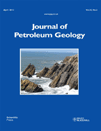
JOURNAL OF PETROLEUM GEOLOGY
Uncovering the Secrets Beneath Our FeetJOURNAL OF PETROLEUM GEOLOGY, published by WILEY, is a prestigious peer-reviewed journal that serves as a vital platform for advancing knowledge in the fields of Earth and Planetary Sciences, Energy Engineering, and Geology. Established in 1978, this journal has cultivated a significant impact, reflected in its 2023 Q2 category rankings across multiple disciplines including Fuel Technology and Geology. Notably, it holds a commendable position in Scopus rankings, marking its importance with a 68th percentile in Earth and Planetary Sciences - Geology. While the journal operates under a traditional subscription model, its extensive repository of research articles facilitates crucial discussions and innovations among researchers, professionals, and students alike. The JOURNAL OF PETROLEUM GEOLOGY is pivotal for those seeking to explore and contribute to the evolving landscape of petroleum geology, offering insights that are essential for both academic and applied science domains.

China Geology
Exploring the Depths of Earth SciencesChina Geology, published by KEAI PUBLISHING LTD, is a leading open-access journal that serves as a pivotal platform for disseminating high-quality research across a wide spectrum of Earth sciences. Since its inception in 2018, the journal has rapidly established itself with an impressive Q1 ranking in multiple critical categories, including Geology, Economic Geology, and Oceanography, among others, reflecting its significant contribution to the academic community. Positioned as a top-tier journal in the Earth Planetary Sciences domain, it ranks #22 out of 321 in Geology and exhibits an admirable impact in sub-fields such as Earth-Surface Processes and Geochemistry and Petrology. China Geology is committed to promoting rigorous scientific inquiry and facilitating the open exchange of knowledge in the geosciences, making it an essential resource for researchers, professionals, and students eager to explore innovative developments and fundamental advances in geology. The journal’s accessibility ensures that critical findings reach a broad audience, thereby enhancing collaboration and driving forward scientific discourse in the global community.

SOCAR Proceedings
Innovating Solutions for Sustainable Resource Management.SOCAR Proceedings is a distinguished academic journal published by the State Oil Company of the Azerbaijan Republic, specifically from the Oil Gas Scientific Research Project Institute. This journal addresses vital aspects of various interdisciplinary fields including Applied Mathematics, Chemical Engineering, Energy Engineering, and Geosciences, making it an essential resource for researchers and professionals alike. Since its inception in 2010, SOCAR Proceedings has cultivated significant contributions to the knowledge base, particularly as it boasts a respectable Q3 category ranking across several relevant fields for 2023. As a journal known for its commitment to disseminating innovative research, it offers invaluable insights into the energy sector that are particularly pertinent to the regional and global challenges posed by resource management and environmental sustainability. With an evolving focus up to 2024, SOCAR Proceedings continues to foster scholarly dialogue and research advancements, making it a vital forum for students and academics looking to deepen their understanding of energy and engineering sciences.
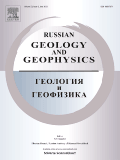
Russian Geology and Geophysics
Unveiling Earth's Secrets, One Study at a TimeRussian Geology and Geophysics is a seminal journal published by GEOSCIENCEWORLD that plays a pivotal role in the dissemination of vital research within the realms of Earth-Surface Processes, Geology, and Geophysics. With an ISSN of 1068-7971 and an E-ISSN of 1878-030X, this journal has witnessed a continuous evolution since its convergence in 2007 and is poised to thrive through 2024. While it is not an Open Access journal, it is recognized for its significant contributions to the academic community, holding a respectable Q2 ranking in Earth-Surface Processes and Q3 rankings in both Geology and Geophysics as of 2023. The journal’s impact factors align it within competitive quartiles, marking it as an essential resource for researchers and professionals seeking to stay at the forefront of geological and geophysical sciences. By publishing high-quality peer-reviewed articles, the journal fosters an environment of knowledge sharing and innovation, making it indispensable for students, practitioners, and scholars alike who are dedicated to advancing our understanding of Earth's complex systems.

Journal of Petroleum Exploration and Production Technology
Driving Excellence in Petroleum Exploration and ProductionThe Journal of Petroleum Exploration and Production Technology, published by SPRINGER HEIDELBERG, is a prominent Open Access journal dedicated to advancing knowledge in the fields of energy, geotechnical engineering, and engineering geology. Since its inception in 2011, the journal has established itself as a critical platform for researchers and professionals seeking to share innovative research, methodologies, and technology developments in petroleum exploration and production. With an impressive ranking of Q2 in both the Energy (miscellaneous) and Geotechnical Engineering and Engineering Geology categories as of 2023, it attracts contributions that push the boundaries of our understanding in these essential industries. The journal is indexed in major databases, ensuring wide visibility and accessibility for its published work. The dedication to Open Access allows for unrestricted dissemination of research, promoting collaboration and knowledge transfer within the global community.

Geoenergy Science and Engineering
Empowering the Quest for Sustainable EnergyGeoenergy Science and Engineering, published by Elsevier in the Netherlands, is a burgeoning academic journal dedicated to the interdisciplinary exploration of geoenergy technologies. With ISSN 2949-8929 and E-ISSN 2949-8910, the journal serves as a crucial platform for disseminating research and advancements in the fields of energy engineering, geotechnical engineering, and sustainable energy practices. Spanning years from 2023 to 2024, it aims to publish high-quality original research, reviews, and case studies that address the pressing challenges and innovations within the realm of geoenergy. Although the journal currently holds modest Scopus rankings, it is poised to increase its impact and recognition in its respective fields, making it an essential resource for researchers, professionals, and students engaged in the urgent quest for sustainable energy solutions.

SPE JOURNAL
Cultivating Insights for a Sustainable Energy FutureSPE JOURNAL, published by the Society of Petroleum Engineers, is a leading academic journal that provides a platform for the dissemination of high-quality research in the fields of energy engineering, geotechnical engineering, and engineering geology. With a solid impact demonstrated by its Q1 ranking in both Energy Engineering and Power Technology, as well as Geotechnical Engineering, the journal is well-positioned to influence advancements in sustainable energy practices and geotechnical methodologies. Covering research from 1969 through 2024, the SPE JOURNAL is dedicated to publishing innovative studies that contribute to the field's body of knowledge while addressing the challenges facing the global energy landscape. Though it does not offer open access, the journal’s rigorous peer-review process ensures that published works are of the highest academic quality, making it an essential resource for researchers, professionals, and students alike aiming to stay at the forefront of energy and geotechnical developments.
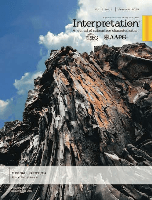
Interpretation-A Journal of Subsurface Characterization
Advancing the Science of Subsurface InsightsInterpretation: A Journal of Subsurface Characterization is a premier academic journal dedicated to advancing the methodologies and technologies integral to the characterization of subsurface environments. Published by the Société de l'Exploration Geophysicists (SEG), this journal serves the fields of geology and geophysics, reflecting its critical role in the intersection of these domains. With an h-index that underscores its scholarly impact and its ranking in the Q2 category for both Geology and Geophysics, Interpretation is recognized for publishing high-quality, innovative research that offers valuable insights and solutions to contemporary challenges in subsurface exploration. Since its inception in 2013, the journal has quickly become essential reading for researchers, professionals, and students alike, providing open access to a wealth of knowledge fostering collaboration and advancement within the geoscience community. Featuring a comprehensive range of studies, methodologies, and reviews, Interpretation is integral for professionals striving to enhance their understanding of subsurface dynamics and impacting areas such as resource management, environmental conservation, and hazard assessment.